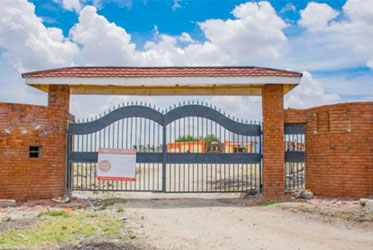However, there are numerous challenges associated with providing affordable housing and addressing these challenges requires a multifaceted approach involving various stakeholders, including the government. Here are some key challenges, solutions, and the role of the government in addressing affordable housing:
Challenges
Housing Supply Gap: Kenya faces a substantial housing supply gap, with demand far exceeding the available affordable housing options. Factors such as land scarcity and construction costs can limit the supply of affordable housing.
High Construction Costs: Construction costs, including land, materials, and labor, are often prohibitively high, making it difficult to develop affordable housing.
Limited Access to Financing: Many individuals and families struggle to access affordable financing options to purchase or build homes, hindering their ability to afford housing. Housing costs, including rent and mortgage payments, have been increasing faster than income levels, making housing less affordable for many individuals and families.
Informal Settlements: Rapid urbanization has led to the proliferation of informal settlements with inadequate housing conditions and limited access to basic services. Insufficient affordable housing options contribute to homelessness and housing insecurity, affecting vulnerable populations, and leading to a high number of slums in urban areas.
Solutions
Government-led Affordable Housing Initiatives: The Kenyan government has implemented various affordable housing initiatives, such as the Affordable Housing Program under the Big Four Agenda. These initiatives aim to increase the supply of affordable housing through partnerships with developers, offering affordable financing options and subsidies. The governments can provide subsidies, grants, and tax incentives to developers and organizations to encourage the construction and maintenance of affordable housing.
Public-Private Partnerships: Collaborations between the government, private sector, and nonprofit organizations can help leverage resources, expertise, and financing to develop affordable housing projects.
Lowering Construction Costs: The government can take measures to lower construction costs by providing tax incentives for construction materials, streamlining regulatory processes, and promoting innovative construction techniques.
Access to Financing: The government can work with financial institutions to develop affordable mortgage products, microfinance options, and housing savings schemes to improve access to financing for potential homeowners.
Slum Upgrading and Regularization: Efforts to upgrade and regularize informal settlements can improve living conditions, provide access to basic services, and offer tenure security to residents.
Role of the Kenyan Government
Policy and Regulation: The government plays a critical role in formulating policies and regulations that support the development of affordable housing, including land regulations, building codes, and land-use planning.
Subsidies and Incentives: The government can provide subsidies, grants, and tax incentives to developers, promoting the construction of affordable housing units and encouraging private sector participation.
Financing Support: The government can establish financial mechanisms and institutions that provide affordable financing options for homebuyers, which offers liquidity to mortgage lenders.
Infrastructure Development: The government’s investment in infrastructure, including transportation, water, and sanitation, can support the development of affordable housing projects and improve access to basic amenities and also to rural areas.
Research and Data Collection: The government can conduct research, gather data, and monitor housing trends to inform policy decisions and identify areas where affordable housing is most needed.
Public Awareness and Education: The government can raise public awareness about affordable housing programs, educate citizens about their rights and available resources, and promote community engagement in housing-related initiatives.
The Kenyan government’s commitment to affordable housing is evident through initiatives such as the Affordable Housing Program and a 3% housing levy deducted from basic salaries. The government can address the challenges associated with affordable housing and work towards ensuring decent and affordable housing for all Kenyan citizens.
For more information, call/chat with us today!





